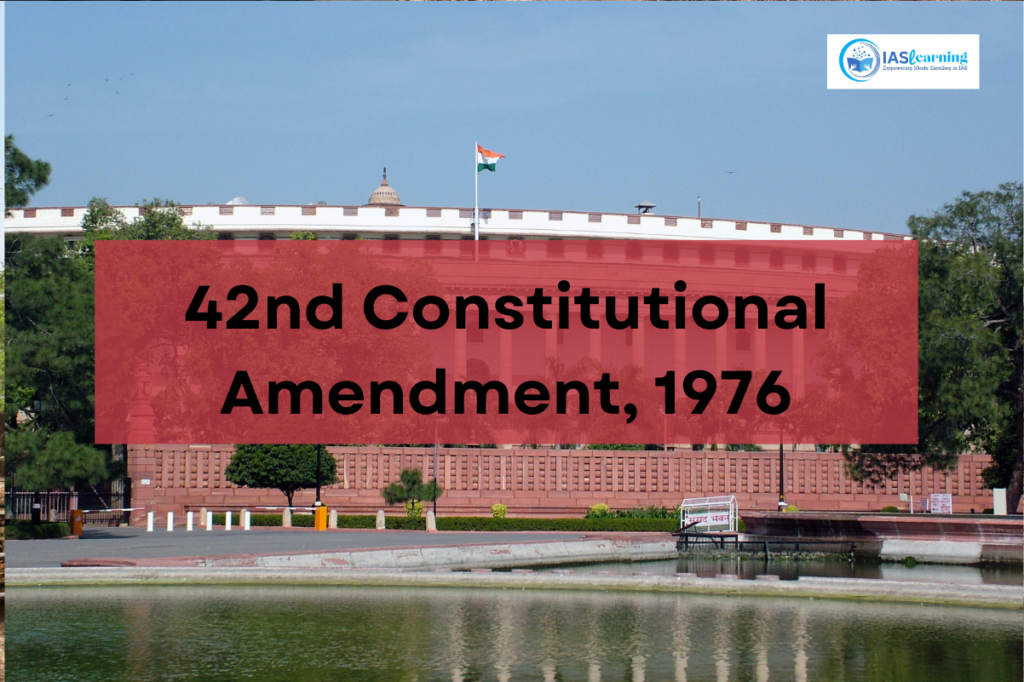Introduction Directive Principles of State Policy
Directive Principles of State Policy (DPSP) play a crucial role in shaping the governance and policies of a country, and in the case of India, they find their roots in the Irish Constitution. The concept of DPSP was introduced through Article 45 of the Irish Constitution, and it was later incorporated into the Constitution of India under Part IV (Article 36–51).
Constitutional Provisions: Part IV of the Indian Constitution outlines the Directive Principles of State Policy. Articles 36 to 51 delve into these principles, emphasizing the moral and ethical obligations of the state towards its citizens. Article 37 explicitly states that the Directive Principles are not enforceable by any court, but they are fundamental in the governance of the country.
The overarching goal of DPSP is to ensure socioeconomic justice and to establish India as a Welfare State. These principles provide a framework for the government to formulate policies and enact laws that promote the well-being of the people.
Fundamental Rights Vs DPSP: In contrast to Fundamental Rights (FRs), which are enforceable by law, DPSP operates at a macro level, guiding the state in its policies rather than imposing legally binding restrictions. While Fundamental Rights protect the individual rights of citizens and are negative or prohibitive in nature, DPSP consists of affirmative directions for the state to follow in the interest of the broader society.

It is crucial to recognize that DPSP and Fundamental Rights are not in conflict; rather, they complement each other. Both are integral to the constitutional framework, with DPSP providing a set of principles that guide the state in its actions.
Classification of Principles: Directive Principles are further classified based on their ideological sources and objectives. These classifications include:
- Socialist Principles: These principles focus on creating a more equitable and just society, addressing issues related to economic and social disparities.
- Gandhian Principles: Drawing inspiration from Mahatma Gandhi’s philosophy, these principles emphasize decentralized governance, rural development, and the welfare of marginalized sections of society.
- Liberal and Intellectual Principles: This category encompasses principles that promote individual liberties, education, and cultural and scientific advancements, contributing to the overall intellectual growth of the nation.
Socialist principles
Article 38 of the Directive Principles of State Policy in the Indian Constitution outlines the socialist principles that the State should strive to achieve. This article emphasizes the State’s responsibility to promote the welfare of the people by ensuring social, economic, and political justice and by minimizing inequalities in various aspects, including income, status, facilities, and opportunities.
Articles 39: These articles further elaborate on specific policies directed towards realizing socialist principles. They include:

- Right to an adequate means of livelihood: The State is tasked with ensuring that all citizens have the right to a decent livelihood.
- Ownership and control of material resources: These should be organized in a manner that serves the common good, and the State should prevent the concentration of wealth in a few hands.
- Equal pay for equal work: Both men and women should receive equal pay for similar work.
- Protection of the strength and health of workers: The State should take measures to safeguard the well-being of workers.
- Prevention of the exploitation of childhood and youth: The State is obligated to ensure that children and youth are not subject to exploitation.
Article 41: This article focuses on securing the right to work, education, and public assistance in cases of unemployment, old age, sickness, and disability.
Article 42: The State is mandated to make provisions for ensuring just and humane conditions of work and providing maternity relief.
Article 43: The State is to make efforts to secure for all workers a living wage and a decent standard of life.
Article 43A: This article emphasizes the participation of workers in the management of industries, reflecting a commitment to industrial democracy.
Article 47: This article directs the State to raise the level of nutrition and the standard of living of the people and to improve public health.
Directives based on Gandhian Principles:
- Article 40: The State is directed to take steps to organize village panchayats as units of self-government, aligning with Gandhian principles of decentralized governance.
- Article 43: The State is encouraged to promote cottage industries on an individual or cooperative basis in rural areas, supporting Gandhi’s vision of economic self-sufficiency at the local level.
- Article 43B: This article promotes the voluntary formation, autonomous functioning, democratic control, and professional management of cooperative societies, aligning with Gandhian ideals of community-driven economic initiatives.
- Article 46: The State is obligated to promote the educational and economic interests of the weaker sections of the people, particularly Scheduled Castes (SCs), Scheduled Tribes (STs), and other vulnerable groups.
- Article 47: The State is tasked with taking steps to improve public health and prohibiting the consumption of intoxicating drinks and drugs that are injurious to health, reflecting Gandhian values of holistic well-being.
- Article 48: This article calls for the prohibition of the slaughter of cows, calves, and other milch and draught cattle, along with efforts to improve their breeds, aligning with Gandhian principles of reverence for animal life.
Directives based on Liberal-Intellectual Principles:
- Article 44: The State is encouraged to secure for citizens a Uniform Civil Code throughout the territory of India, promoting the idea of a common set of laws for all citizens regardless of religious affiliations.
- Article 45: The State is directed to provide early childhood care and education for all children until they complete the age of six years, emphasizing the importance of education in the early years.
- Article 48: This article calls for the organization of agriculture and animal husbandry on modern and scientific lines, reflecting a commitment to technological and scientific progress in these sectors.
- Article 48A: The State is tasked with protecting and improving the environment and safeguarding the forests and wildlife of the country, reflecting a commitment to ecological sustainability.
- Article 49: The State is obligated to protect every monument or place of artistic or historic interest, recognizing the cultural and historical importance of such sites.
- Article 50: This article emphasizes the separation of the judiciary from the executive in the public services of the State, promoting the independence of the judiciary.
- Article 51: This article outlines the State’s commitment to establishing international peace and security through just and honorable relations with nations, respect for international law and treaty obligations, and the encouragement of settlement of international disputes by arbitration.

Amendments in DPSP:
1. 42nd Constitutional Amendment, 1976:
- Article 39A: Introduced to provide free legal aid to the poor.
- Article 43A: Added to promote the participation of workers in the management of industries.
- Article 48A: Added to protect and improve the environment.
2. 44th Constitutional Amendment, 1978:
- Introduced Section-2 to Article 38, emphasizing the State’s role in minimizing economic inequalities in income and eliminating inequalities in status, facilities, and opportunities among individuals and groups.
- Eliminated the Right to Property from the list of Fundamental Rights.
3. 86th Amendment Act of 2002:
- Changed the subject matter of Article 45, making elementary education a fundamental right under Article 21A.
Conflicts Between Fundamental Rights and DPSP: Associated Cases
1. Champakam Dorairajan v the State of Madras (1951):
- The Supreme Court ruled that in case of any conflict between Fundamental Rights and Directive Principles, Fundamental Rights would prevail.
- It declared that Directive Principles must conform to and run as subsidiary to Fundamental Rights.
- Fundamental Rights could be amended by Parliament through constitutional amendment acts.
2. Golaknath v the State of Punjab (1967):
- The Supreme Court declared that Fundamental Rights could not be amended by Parliament even for the implementation of Directive Principles.
- This decision was later overruled by the Kesavananda Bharati case.
3. Kesavananda Bharati v the State of Kerala (1973):
- Overruled the Golak Nath verdict.
- Declared that Parliament can amend any part of the Constitution but cannot alter its “Basic Structure.”
- Led to the elimination of the Right to Property (Article 31) from the list of Fundamental Rights.
4. Minerva Mills v the Union of India (1980):
- Reiterated that Parliament can amend any part of the Constitution but cannot change the “Basic Structure.”
Implementation of DPSP: Associated Acts and Amendments
1. Land Reforms:
- Various state laws implemented to bring changes in the agrarian society, including abolition of intermediaries, tenancy reforms, imposition of ceilings on land holdings, and distribution of surplus land among the landless laborers.
2. Labour Reforms:
- Acts such as the Minimum Wages Act (1948), Code on Wages, 2020, Contract Labour Regulation and Abolition Act (1970), Child Labour Prohibition and Regulation Act (1986), and others enacted to protect the interests of laborers.
3. Panchayati Raj System:
- 73rd Constitutional Amendment Act, 1992, introduced a three-tier Panchayati Raj System at the village, block, and district levels.
4. Cottage Industries:
- Various boards and commissions established to support cottage industries, as per Article 43.
5. Education:
- 86th Constitutional Amendment and the Right to Education Act, 2009, made elementary education a Fundamental Right.
6. Rural Area Development:
- Programs like the Community Development Programme, Integrated Rural Development Programme, and Mahatma Gandhi National Rural Employment Guarantee Act launched to raise the standard of living in rural areas (Article 47).
7. Health:
- Schemes like Pradhan Mantri Gram Swasthya Yojana and National Rural Health Mission implemented to fulfill the social sector responsibility of the Indian State.
8. Environment:
- Acts like the Wildlife (Protection) Act, Forest (Conservation) Act, and Environment (Protection) Act enacted to safeguard wildlife, forests, and the environment.
9. Heritage Preservation:
- The Ancient and Historical Monument and Archaeological Sites and Remains Act (1958) enacted to protect monuments, places, and objects of national importance.
